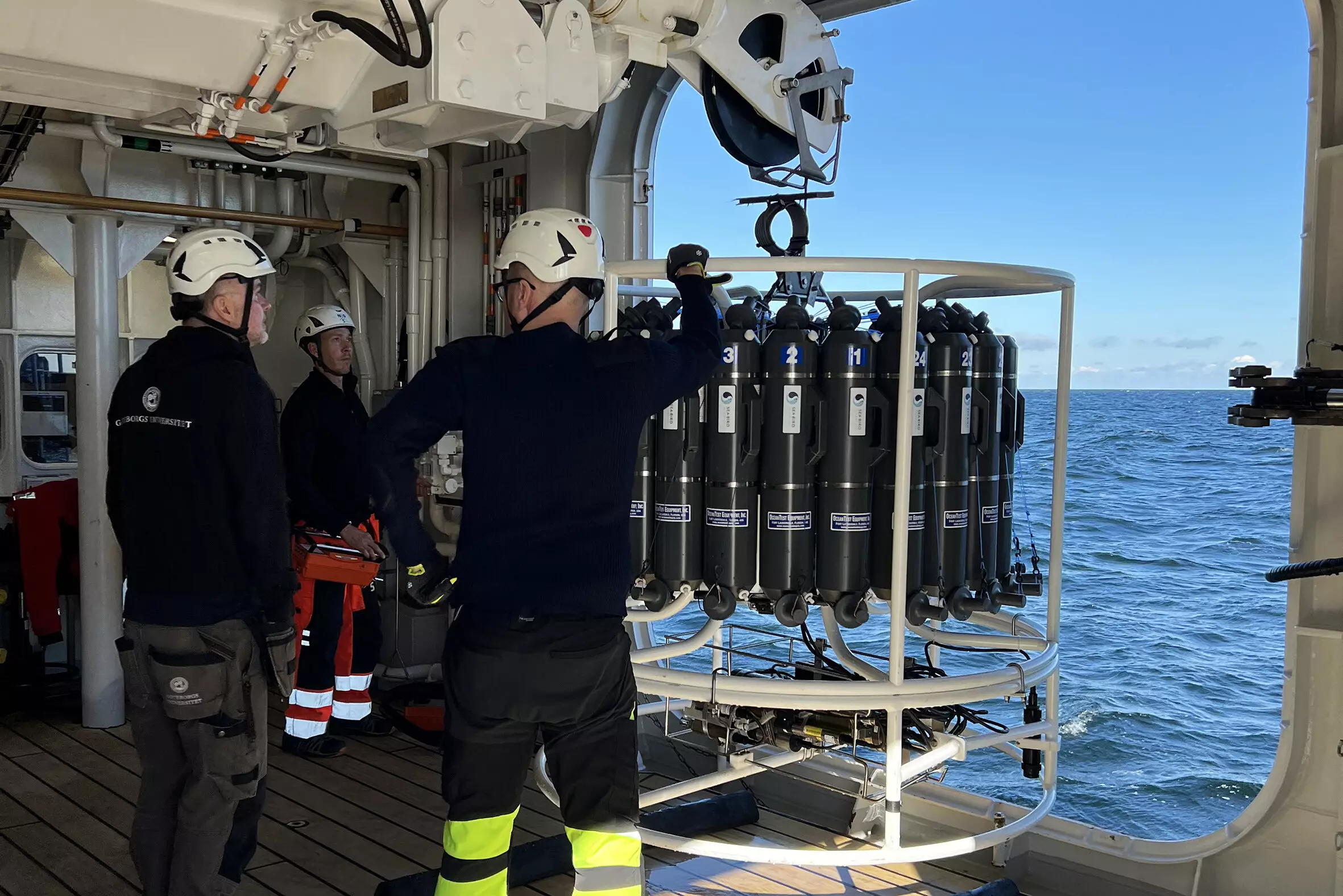The methane leak from the Nord Stream gas pipeline in the southern Baltic Sea in September 2022 has raised concerns about its potential impact on the marine environment. Researchers from the University of Gothenburg conducted a study to assess the effects of this massive methane release on the water and marine life in the area.
The study revealed that a significant amount of methane remained dissolved in the water, despite the large bubbles observed on the water surface. Between 10,000 and 50,000 tons of methane were estimated to have dissolved in the sea, spread over large areas. This methane is being processed by bacteria in the water, although the long-term effects are still unknown.
One of the strengths of the study was the ability to distinguish between methane from the Nord Stream leak and naturally occurring methane in the water. The isotopic composition of methane from the gas pipeline differed from that produced in the sediments, allowing researchers to track the source of the methane in the water.
Despite the rapid and substantial release of methane into the water, the researchers noted that there was limited mixing in the water masses. The stratification of water layers, based on temperature and salinity differences, remained stable. This led to varying levels of leaked methane in different parts of the water.
Biological Consequences
The potential impact of increased methane levels on biological life in the southern Baltic Sea is still unclear. Researchers collected plankton samples in the affected area to assess the impact on phytoplankton and zooplankton. Preliminary results showed high bacterial activity in the area, but the full extent of the impact remains to be seen.
To better understand the consequences of the methane leak, researchers conducted a follow-up visit to the area three months later. They found that bacterial activity remained high, indicating ongoing processing of the dissolved methane in the water. Further monitoring is needed to assess the impact on marine life and ecosystem dynamics in the southern Baltic Sea.
The methane leak from the Nord Stream gas pipeline had a significant impact on the water quality and marine environment in the southern Baltic Sea. The dissolved methane in the water is being processed by bacteria, but the long-term consequences for marine life are still unknown. Continued monitoring and research are essential to understand the full extent of the impact and to develop strategies for mitigating any potential harm to the ecosystem.


Leave a Reply